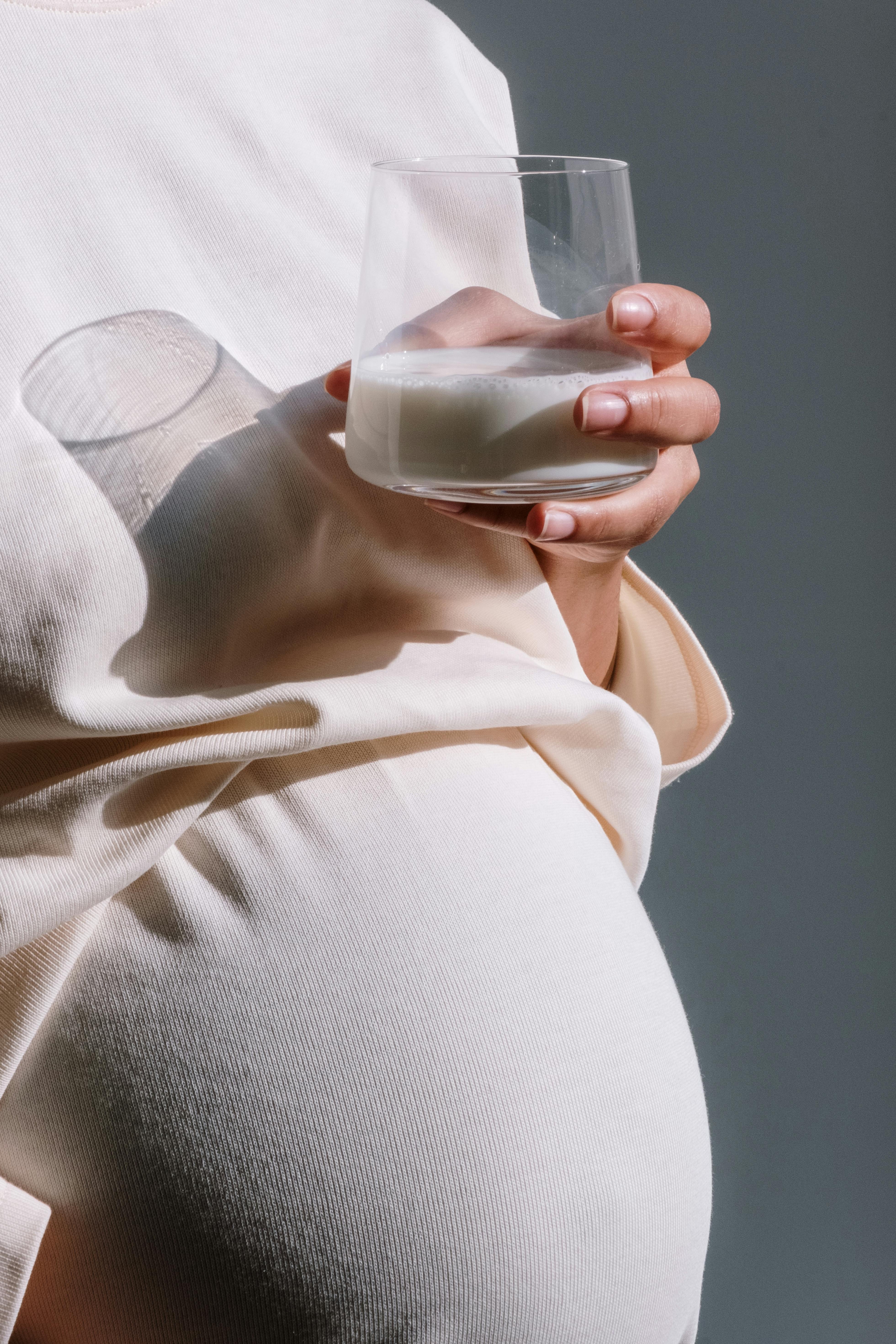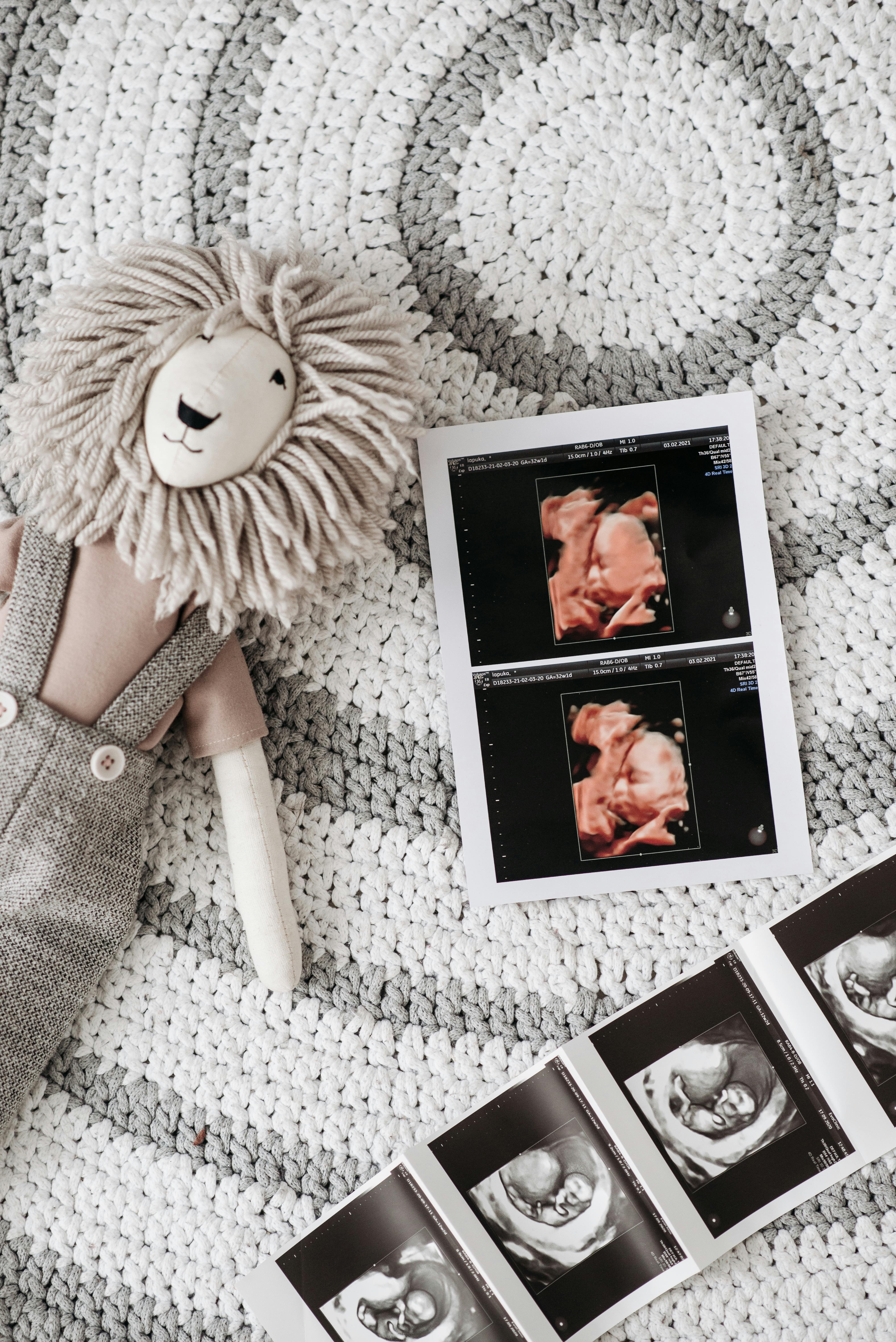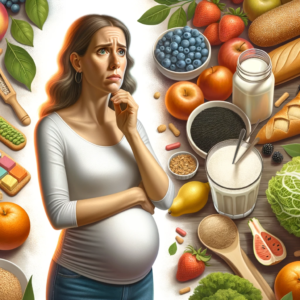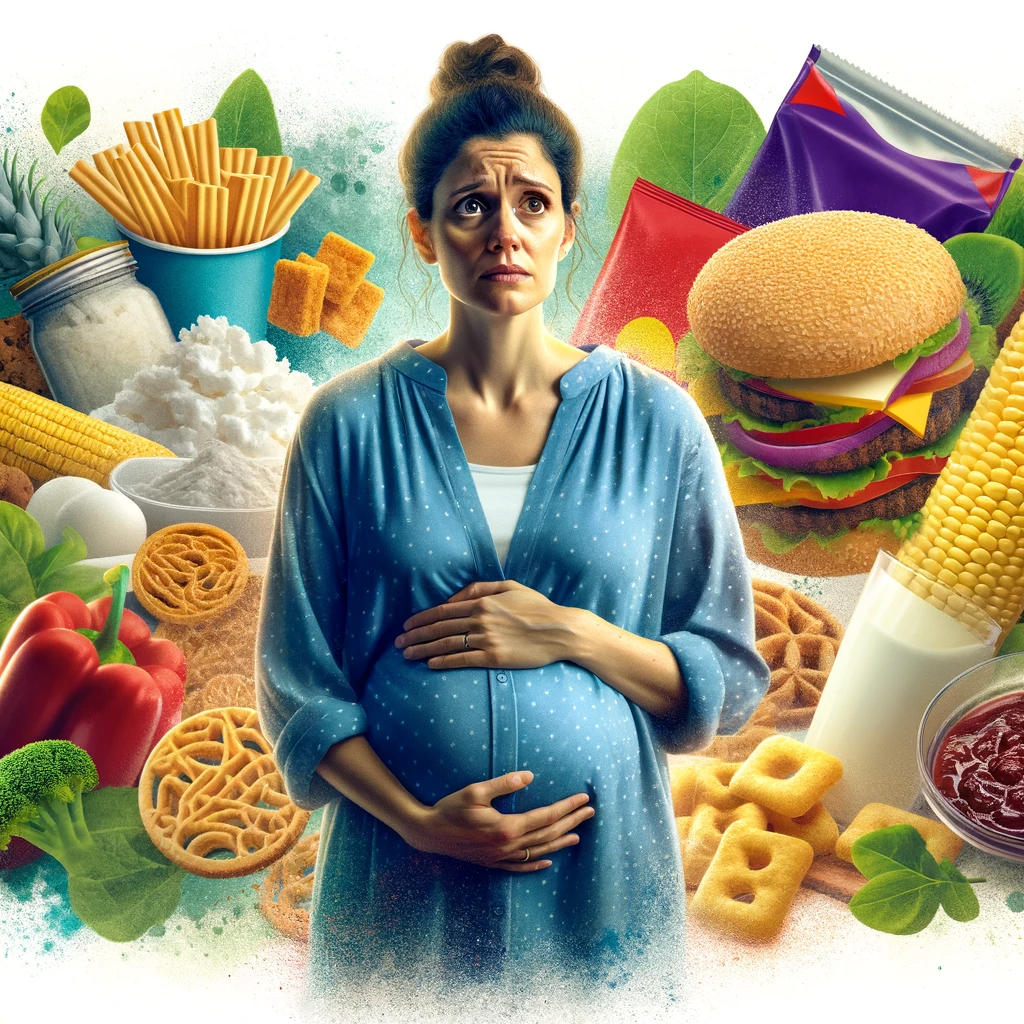In today’s article, we explore the impact of poor nutrition on pregnancy. Pregnancy is a time when a woman’s body goes through significant changes and requires additional nutrients to support a healthy development for both mother and baby. However, inadequate nutrition can have far-reaching consequences for both the mother and the child. Recent scientific studies have shed light on the connection between poor nutrition during pregnancy and increased risk of complications such as gestational diabetes, preterm birth, and low birth weight. Understanding the impact of poor nutrition on pregnancy is crucial in supporting expectant mothers to make informed choices for their own well-being and that of their baby.

Discover the Ultimate Weight Loss Secrets Here!
Effects of Poor Nutrition on Pregnancy
During pregnancy, proper nutrition is essential for the health and development of both the mother and the baby. When you don’t consume a balanced diet, it can have significant consequences on the pregnancy outcomes. Here, we will discuss the various effects of poor nutrition on pregnancy and the potential risks associated with it.
Increased Risk of Birth Defects
One of the most concerning effects of poor nutrition during pregnancy is an increased risk of birth defects in the baby. Studies have shown that inadequate intake of key nutrients like folic acid, iron, and iodine can lead to abnormalities in the development of the baby’s organs and systems, such as the brain, spine, and heart. For example, a study published in the Journal of the American Medical Association found that inadequate folic acid intake during pregnancy was associated with a higher risk of neural tube defects, such as spina bifida and anencephaly.
Low Birth Weight
Another consequence of poor nutrition during pregnancy is the increased likelihood of delivering a baby with low birth weight. Low birth weight is defined as the weight of the baby being below 2,500 grams at birth and is often associated with various health complications. Inadequate intake of vital nutrients like protein, calories, and micronutrients can result in restricted fetal growth, leading to low birth weight. A recent study conducted by researchers at the University of California, San Francisco, found that maternal nutrient deficiencies, particularly in protein and energy, were significantly associated with an increased risk of delivering a baby with low birth weight.
Preterm Birth
Poor nutrition during pregnancy has also been linked to an increased risk of preterm birth, which refers to the baby being born before completing 37 weeks of gestation. Preterm birth can lead to a range of health problems for the baby, such as respiratory issues, developmental delays, and even mortality. Various studies have shown that inadequate nutrient intake, such as insufficient intake of omega-3 fatty acids and certain vitamins, can increase the likelihood of preterm birth. A recent systematic review published in the journal Nutrients found that a deficiency of omega-3 fatty acids during pregnancy was associated with an increased risk of preterm birth.
Impaired Fetal Development
Poor nutrition during pregnancy can have long-lasting effects on the development of the fetus. Insufficient intake of essential nutrients can lead to impaired cognitive and behavioral development in the baby.
Cognitive and Behavioral Issues
Multiple studies have demonstrated the link between maternal malnutrition and cognitive and behavioral issues in children. For example, a study published in the European Journal of Public Health found that maternal iodine deficiency during pregnancy was associated with lower IQ scores in children. Another study conducted by researchers at Cornell University found that inadequate intake of omega-3 fatty acids during pregnancy was related to an increased risk of behavioral problems, such as attention deficit hyperactivity disorder (ADHD) and oppositional defiant disorder (ODD), in children.
Reduced Immune Function
Proper nutrition during pregnancy plays a crucial role in supporting the developing immune system of the baby. When the mother’s diet lacks essential nutrients like vitamin C, vitamin D, and zinc, the immune system of the fetus may not develop properly. This can result in reduced immune function in the baby, making them more susceptible to infections and illnesses later in life. A study published in the Journal of Perinatal Medicine found that maternal zinc deficiency during pregnancy was associated with impaired immune function in the newborns, leading to an increased risk of infections.
Increased Risk of Chronic Diseases
Research has shown that poor nutrition during pregnancy can have long-term effects on the baby’s risk of developing chronic diseases later in life. Studies have linked inadequate prenatal nutrition to an increased risk of conditions such as obesity, type 2 diabetes, and cardiovascular diseases in adulthood. For instance, a study published in the Journal of Developmental Origins of Health and Disease found that maternal undernutrition during pregnancy was associated with an increased risk of obesity and metabolic disorders in the offspring.
Click Here for Proven Fat-Burning Strategies!
Maternal Health Issues
Poor nutrition not only affects the development of the fetus but also puts the mother at risk of various health complications during pregnancy.
Anemia
Inadequate intake of iron and other essential nutrients can lead to the development of anemia in pregnant women. Anemia is characterized by a decrease in the number of red blood cells or hemoglobin levels, resulting in fatigue, weakness, and increased susceptibility to infections. According to a study published in the Journal of Obstetrics and Gynaecology Canada, iron deficiency anemia affects approximately 20-30% of pregnant women worldwide.
Gestational Diabetes
Poor nutrition and excessive weight gain during pregnancy can increase the risk of developing gestational diabetes, a condition characterized by high blood sugar levels during pregnancy. Gestational diabetes can have adverse effects on both the mother and the baby, including an increased risk of complications during delivery and an increased likelihood of developing type 2 diabetes later in life. A study published in the Journal of Clinical Endocrinology and Metabolism found that inadequate intake of calcium and vitamin D during pregnancy was associated with an increased risk of gestational diabetes.
Preeclampsia
Preeclampsia is a potentially life-threatening condition that can occur during pregnancy and is characterized by high blood pressure and organ damage, particularly in the liver and kidneys. Poor nutrition has been identified as one of the risk factors for the development of preeclampsia. A study published in the American Journal of Epidemiology found that a low intake of antioxidants, such as vitamins C and E, was associated with an increased risk of preeclampsia.
Complications during Pregnancy
Inadequate nutrition during pregnancy can also contribute to various complications that can affect both the mother and the baby.
Higher Risk of Infections
Poor nutrition can weaken the immune system of pregnant women, making them more susceptible to infections during pregnancy. Infections such as urinary tract infections, respiratory tract infections, and vaginal infections can pose significant risks to both the mother and the baby. A study published in the Journal of Maternal-Fetal & Neonatal Medicine found that maternal malnutrition was associated with an increased risk of infections during pregnancy.
Reduced Tolerance to Physical Stress
When your body is not receiving the necessary nutrients, it becomes more difficult to cope with the physical stress of pregnancy. Inadequate nutrition can lead to fatigue, dizziness, and weakness, making it challenging for you to perform daily activities and sustain the demands of pregnancy.
Delayed Healing and Recovery
Proper nutrition is crucial for the healing and recovery process after childbirth. When you don’t provide your body with the necessary nutrients, it can hinder the healing of wounds, increase the risk of infections, and prolong the recovery period. Ensuring adequate nutrition during pregnancy is essential to promote optimal healing and recovery.

Unlock Your Path to a Healthier You!
Increased Maternal Mortality
Poor nutrition during pregnancy can have severe consequences, including an increased risk of maternal mortality.
Higher Risk of Complications during Delivery
Inadequate nutrition can lead to various complications during delivery, putting the mother’s life at risk. Malnourished women are more likely to experience prolonged labor, obstructed labor, and the need for emergency interventions such as cesarean sections. A study published in the journal BMC Pregnancy and Childbirth found that maternal malnutrition was associated with a higher risk of complicated delivery.
Postpartum Hemorrhage
Postpartum hemorrhage refers to excessive bleeding following childbirth and is a leading cause of maternal mortality worldwide. Inadequate nutrition during pregnancy can increase the risk of postpartum hemorrhage, as it affects the body’s ability to form blood clots and recover from childbirth. A study published in the International Journal of Environmental Research and Public Health found that maternal malnutrition was associated with an increased risk of postpartum hemorrhage.
Impact on Breastfeeding
Proper nutrition during pregnancy is instrumental in ensuring adequate breast milk production and providing optimal nutrition to the baby.
Reduced Milk Production
When you don’t consume a balanced diet during pregnancy, it can impact your milk production after childbirth. Inadequate intake of calories, protein, and certain vitamins and minerals can lead to decreased milk production, making it challenging to meet the nutritional needs of the baby.
Poor Nutritional Content of Breast Milk
Poor nutrition during pregnancy can also affect the quality of breast milk. Nutrient deficiencies in the mother’s diet can result in lower levels of essential nutrients in breast milk, compromising its nutritional value. This can potentially impact the baby’s growth and development.

Long-term Health Effects on Offspring
The effects of poor nutrition during pregnancy can extend beyond infancy and have long-term health consequences for the offspring.
Increased Risk of Obesity and Overweight
Poor nutrition during pregnancy has been linked to an increased risk of obesity and overweight in children. Maternal malnutrition can affect the programming of genes related to weight regulation and metabolism in the baby, leading to an increased susceptibility to obesity later in life. A study published in the International Journal of Obesity found that maternal malnutrition was associated with an increased risk of childhood obesity.
Developmental Delays
Inadequate nutrition during pregnancy can impair the developmental trajectory of the baby, leading to delays in milestones such as language development, motor skills, and cognitive abilities. A study published in The Lancet Child & Adolescent Health found that maternal malnutrition during pregnancy was associated with an increased risk of developmental delays in children.
Cardiovascular Problems
Poor nutrition during pregnancy can also have implications for the cardiovascular health of the offspring. Studies have shown that maternal malnutrition can influence the development of the baby’s cardiovascular system, increasing the risk of cardiovascular diseases in adulthood. A study published in the Journal of Developmental Origins of Health and Disease found that maternal undernutrition during pregnancy was associated with an increased risk of hypertension in the offspring.
Intergenerational Cycle of Poor Nutrition
The consequences of poor nutrition during pregnancy can be perpetuated across generations, creating an intergenerational cycle of poor nutrition.
Impact on Future Pregnancies
Women who experience poor nutrition during their own pregnancies may be at higher risk of facing similar challenges in future pregnancies. The nutritional status of a woman before and during pregnancy can impact her overall reproductive health and subsequent pregnancies. Providing adequate nutrition between pregnancies and focusing on improving maternal health can help break the cycle of poor nutrition.
Effects on Children’s Health and Development
The impact of poor nutrition during pregnancy can extend to the health and development of the next generation. Studies have shown that children born to malnourished mothers are more likely to experience poor health outcomes, including stunted growth, cognitive impairments, and chronic diseases. Addressing maternal nutrition is crucial for improving the long-term health outcomes of children.

Social and Economic Consequences
The consequences of poor nutrition during pregnancy go beyond individual health and have wider social and economic implications.
Higher Healthcare Costs
Inadequate nutrition during pregnancy can lead to increased healthcare costs for both individuals and society. Complications arising from poor nutrition require additional medical interventions, including hospitalizations, medications, and specialized care, resulting in higher healthcare expenses.
Increased Burden on Social Support Systems
Addressing the consequences of poor nutrition during pregnancy places an increased burden on social support systems. The long-term health needs of the affected individuals, particularly the children, may require additional resources and support from healthcare systems, educational institutions, and social welfare programs.
Addressing Poor Nutrition during Pregnancy
The importance of addressing poor nutrition during pregnancy cannot be overstated. Ensuring proper nutrition is essential for the well-being of both the mother and the developing baby.
Importance of Prenatal Care
Regular prenatal care plays a vital role in addressing poor nutrition during pregnancy. Prenatal care should include comprehensive assessments of the mother’s nutritional status, identification of any nutrient deficiencies, and the development of tailored nutrition plans to meet the specific needs of the mother and the baby.
Nutritional Counseling and Education
Providing nutritional counseling and education to pregnant women is crucial for promoting healthy eating habits and ensuring adequate nutrient intake. Educating women about the importance of a balanced diet, the specific nutritional requirements during pregnancy, and the potential consequences of poor nutrition can empower them to make informed choices for their own health and that of their baby.
Access to Nutrient-rich Foods
Ensuring access to nutrient-rich foods is essential for addressing poor nutrition during pregnancy. Efforts should be made to improve the availability and affordability of fresh fruits, vegetables, whole grains, lean proteins, and dairy products. In settings where access to diverse food sources is limited, strategies like food fortification and supplementation may be necessary to bridge the nutritional gaps.
In conclusion, poor nutrition during pregnancy can have far-reaching consequences for both the mother and the baby. It increases the risk of birth defects, low birth weight, preterm birth, impaired fetal development, maternal health issues, complications during pregnancy, and even maternal mortality. In addition, poor maternal nutrition can impact breastfeeding, have long-term health effects on offspring, perpetuate an intergenerational cycle of poor nutrition, and result in social and economic consequences. Addressing poor nutrition during pregnancy requires comprehensive prenatal care, nutritional counseling and education, and access to nutrient-rich foods. Prioritizing good nutrition during pregnancy is crucial for ensuring optimal outcomes for both mothers and their babies.

